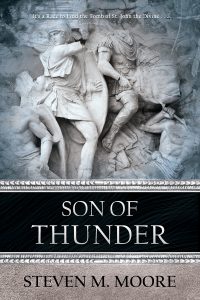The current state of publishing fiction…
After thirty-plus books, some traditionally published but most self-published, I’ve experienced a major part of fiction publishing’s evolution—painful at times but always an adventure. After suffering initially with hundreds of rejections from literary agents, the majority being the sycophants of the major publishing conglomerates (the worst of traditional publishing now called the Big Five), the very people who are basically manuscript filters for acquisition editors so the latter don’t have to work too hard, I used self-publishing’s print-on-demand (POD) route for my first novels. I soon hopped on the ebook bandwagon (I do hate to kill forests!) and now exclusively publish in ebook format.
While I have arrived at this point where I’m one hundred percent in control of my fiction writing (book covers being the obvious exception, as they should be), I feel compelled to list some recent trends I find very disturbing.
Demographics. This is a general worry and that’s perhaps better described as the diminishing numbers of discerning readers. Whether it’s a failure of our educational system—teachers who are more interested in their union’s power (that’s all one candidate for NJ’s governor has to offer!) and their benefits, rather than teaching?—or failures of parents for their lack of time or understanding, or lazy and uncaring youths addicted to computer games and streaming video–generally speaking, the younger you are, the less you read (and write!). This obviously biases the fiction produced in unpredictable and often negative ways and destroys centuries of advances in traditional storytelling, once a highly respected art form. Many of the other points listed below relate to these demographic changes.
Print vs. ebooks. For example, even from young readers, I often hear, “I just like the feel of a print book, even if it’s just a paperback.” These readers might have valid ecological concerns otherwise, global warming and climate control among them, but they fail to understand that killing forests hurts the environment. Paper waste is a major component in our landfills, for example. Ebooks are eco-friendly and also more cost-effective. (Except for the Big Five’s, because they want to preserve print formats. They make more money from them and don’t give a rat’s ass about the environment!)
AI. While ebooks represent an advance for publishing with some negatives, AI has negative consequences as well. Even now you probably have an AI app on your phone to help you create a document. Even for a young student wanting to write something original (or a supposedly responsible adult?), AI offers a shortcut. I can now ask an AI program to write in the style of Stephen King, or even to write like the long-dead Charles Dickens, and the program can do a damn good job doing it. (My son had a chatbot write in the style of Steven M. Moore. That experiment was a failure, probably because the AI program got confused with the training set: I don’t have just one style. I vary styles even within one genre, and pity the poor AI confronting a mix of first- and third-person storytelling in my mysteries, thrillers, and sci-fi stories!) AI can go a long ways, though, in eliminating the need for human editors who robotically follow a very limited set of rules designed to please an acquistions editor..
 Fan fiction fixes. A troubling new twist on how technology can be a negative influence on publishing, whether AI is used or not, is found where readers can modify plots to create something they prefer. For example, one editor of my Son of Thunder complained that I killed off the Turkish police detective. But that was my choice; I’m the author! Why should a reader be allowed to make changes on a whim? Besides the obvious illegality for such actions—they’re at least a violation of copyright!—it’s morally reprehensible! And the “fan fiction” part of “fan fiction fixes” is an insult: If you change an author’s story, you’re not really a fan! You can write a review containing your complaints, but be forewarned that other readers might consider them nitpicking…or worse! (In her defense, by the way, the editor didn’t propose any changes, and I agree that the Turkish detective was a good and noble man.)
Fan fiction fixes. A troubling new twist on how technology can be a negative influence on publishing, whether AI is used or not, is found where readers can modify plots to create something they prefer. For example, one editor of my Son of Thunder complained that I killed off the Turkish police detective. But that was my choice; I’m the author! Why should a reader be allowed to make changes on a whim? Besides the obvious illegality for such actions—they’re at least a violation of copyright!—it’s morally reprehensible! And the “fan fiction” part of “fan fiction fixes” is an insult: If you change an author’s story, you’re not really a fan! You can write a review containing your complaints, but be forewarned that other readers might consider them nitpicking…or worse! (In her defense, by the way, the editor didn’t propose any changes, and I agree that the Turkish detective was a good and noble man.)
I’m guessing that the positive advances in publishing—for example, how easy it is to self-publish now with Draft2Digital (see the free PDF download “Writing Fiction” found in the list on my “Free Stuff & Contests” web page)—will win the war even though losing some battles. Maybe new readers will realize the limitations of computer games and streaming video (viewers’ participation can be unlimited when reading a book if the author does their job properly). Time will tell.
***
Comments are always welcome. (Please follow the rules listed on the “Join the Conversation” web page at this website.)
Free PDF downloads. Besides the short course “Writing Fiction,” you can download short story collections and even two complete novels. See the list on the “Free Stuff and Contests” web page at this website.
Around the world and to the stars! In libris libertas!
